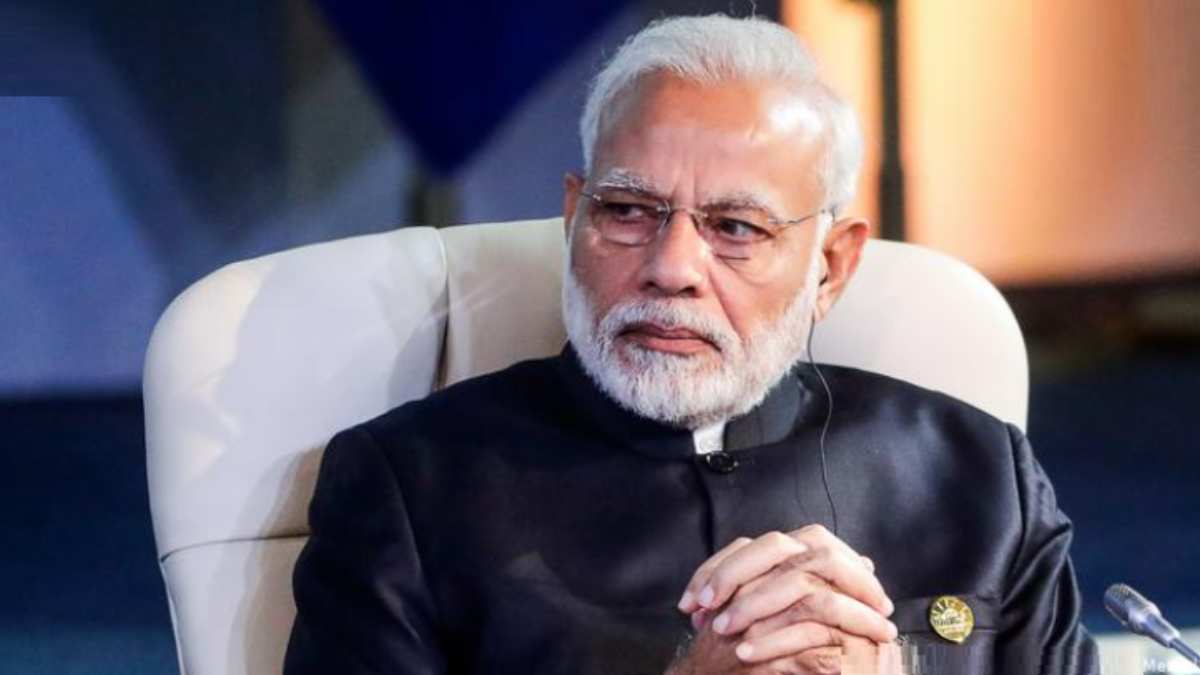
Ever since the first day of assuming the office of the Prime Minister, Narendra Modi has marked his tenure with various reformative coups at regular intervals, which have laid the foundation of setting the financial basics for the country in the right manner.
On Thursday, PM Modi unveiled the new tax reform with an objective of bringing absolute transparency in the taxation sector. This reform, titled ‘Transparent Taxation: Honouring the Honest’, brings a series of tax laws in the system aimed at the simplification of tax filing and helping taxpayers. More importantly, it focuses on completely eradicating the “Officer Raj” system in the establishment.
The entire tenure of the Modi government since 2014 has been marked by its setting of the basics right in every aspect. From foreign policy to maintaining foreign reserves, from giving legal security to people of this nation by rewriting various rules and regulations to securing the boundaries of the nation, the Centre excelled in setting the right direction for the country.
As far as these new tax reforms are concerned, the Centre’s priority of establishing a firm financial direction for the country in all ways can be traced right from the commencement of the Modi government’s tenure. The first cabinet meeting of the Modi government had decided on setting up a Supreme Court-monitored SIT (Special Investigation Team). The scrapping of high denomination notes has certainly mitigated the exchange of cash transactions and put indispensable importance on the role of banks. This leads me to highlighting the significance of another such scheme named ‘Pradhan Mantri Jan-Dhan Yojna’ that enabled a huge number of fellow citizens to open bank accounts, the benefits of which are evident in the current crisis of Covid-19.
From the Renegotiation of Tax Treaties and Automatic Information Exchange Agreement to The Black Money (Undisclosed Foreign Income and Assets) and Imposition of Tax Act or Income Disclosure Scheme to Tax Collection at Source on Cash Sales exceeding Rs 2 lakh, the Modi government has surely exhibited its honest will and a thought-out action plan to battle issues faced by the country’s financial sector. The government has also brought changes in banking laws, resolved the issue of twin balance sheets, and successfully tackled the predicaments of NPAs along with insolvency and bankruptcy. Further, with the introduction of the GST, the average tax rate of 24 % has gone down to 18%.
What has come as a major relief to Indian taxpayers is the fact that the government has not hiked the income tax rates in the last six years. On the contrary, it has given major relief to honest taxpayers. Prime Minister Modi with his decision has explicitly exhibited one thing: That he trusts honest taxpayers. While doing so, he has decided to set things right, starting with the very basics.
At times, his decisions do imply the saying, ‘Bitter the medicine, better the cure’. However, honest taxpayers have always supported PM Modi’s decision because they know that he has their best interests in mind when any decision is taken by the government.
The PM has appealed to the citizens to be honest taxpayers and has received a significant response as well, because the nation today knows that the government believes in “Honoring the Honest”.
PM Modi has always emphasised on ensuring minimum government and maximum governance. True to his words, he successfully removed the Licence Raj, and now with these reforms, he is aiming at the complete eradication of the Officer Raj.
The big reforms, such as faceless assessment, faceless appeal and taxpayers’ charter, mark a major transformation, the benefits of which will be cherished by many generations to come. With these reforms, the taxpayer can now be assured of fair and rational behaviour from IT officers. The common practices of a few officers in the department, which were an open secret so far, will now cease to exist. Through these reforms, the taxpayer has been given the right to appeal, thus dignifying the honest taxpayer in a significant way.
In the old system, there was often a fear amongst taxpayers in appealing against the Income Tax department’s decision as they were apprehensive of a potential retaliatory action. However, with these new reforms, these appeals will be transferred randomly to other officials from anywhere in the country. In addition, even the identity of the official will now remain anonymous.
Decisions like these have, in a massive way, infused a sense of security and trust for the Modi government amongst honest taxpayers. Reforms like these will verily bring in a transparent, efficient and accountable tax administration.
As rightly said by PM Modi, in the past 6 years, India has witnessed the evolution of a new governance model in tax administration. The government has decreased the complexity, taxes, litigation, and increased transparency, tax compliance, and placing trust on the taxpayer.
Ever since 2014, PM Modi has always focused on making India one of the fastest growing economies. From being positioned at the 11th rank in the past, India has emerged as the top 5 fastest growing economies in the world. This is nothing but the consequence of the successful policies of the Modi government which has completely whitewashed the policy paralysis era of the previous UPA governments.
There was a time when the honest people of this country always complained about the foundation of many policies of the nation being incorrect. The very same people today take pride in saying that PM Modi is now successfully setting the basics right.
The author is media head and spokesperson of Maharashtra BJP. The views expressed are personal.